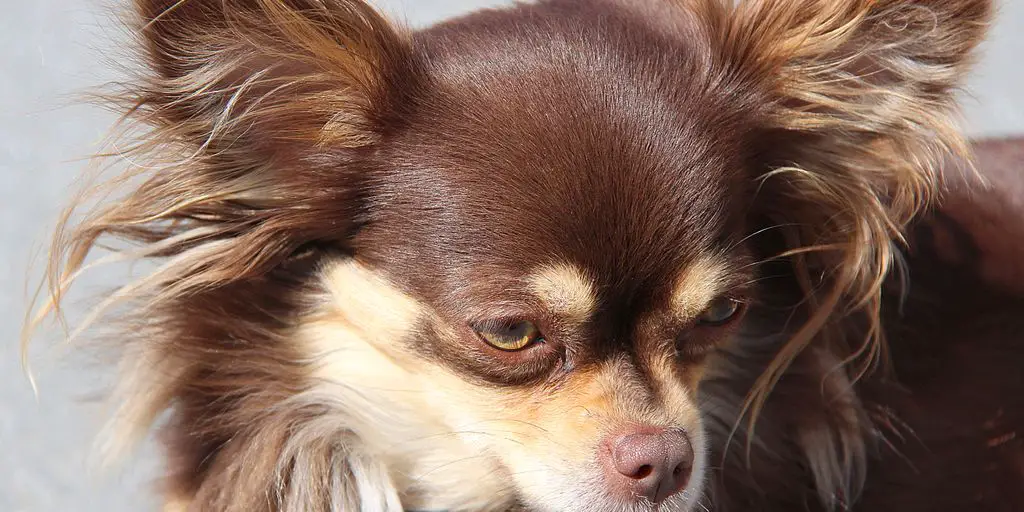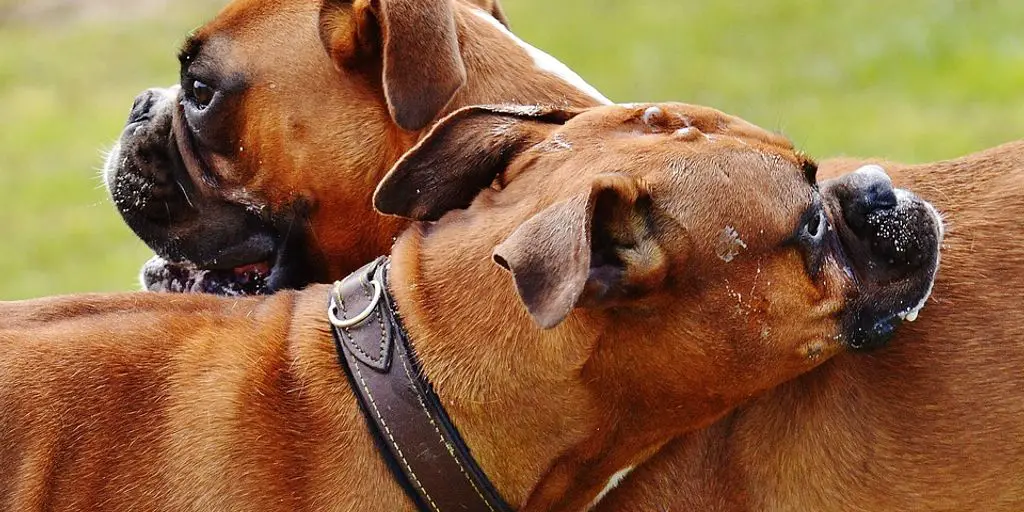Have you ever wondered why your dog seems to enjoy munching on grass? This peculiar behavior is more common than you might think, and it has puzzled pet owners and researchers alike for years. From instinctual behaviors inherited from their ancestors to potential nutritional deficiencies, there are several surprising reasons why dogs eat grass. In this article, we’ll explore the various theories behind this curious habit and what it might mean for your furry friend’s health.
Key Takeaways
- Dogs may eat grass due to instinctual behaviors inherited from their ancestors, including natural foraging instincts and survival mechanisms.
- Nutritional deficiencies, such as a lack of fiber or missing vitamins and minerals, can lead dogs to seek out grass as an additional nutrient source.
- Eating grass can act as a digestive aid for dogs, helping to relieve upset stomachs, induce vomiting, or ease bloating.
- Behavioral reasons, including boredom, curiosity, attention-seeking behavior, and stress, can also prompt dogs to eat grass.
- It’s essential to monitor your dog’s grass-eating habits and consult a veterinarian if the behavior becomes frequent or is accompanied by signs of illness.
Instinctual Behavior in Dogs
Dogs eating grass might seem odd, but it’s actually rooted in their instinctual behavior. This behavior can be traced back to their wild ancestors who had to hunt for their food. Wild dogs and wolves often consumed entire animals, including the stomach contents, which frequently contained grass and plants. This habit has been passed down through generations, making it a natural part of a dog’s behavior today.
Inherited Traits from Ancestors
Your dog’s grass-eating habit is likely an inherited trait from their wild ancestors. Studies have shown that a significant percentage of wolves’ stool content includes grass. Even though modern dogs don’t need to hunt for their food, they still retain these ancient scavenging instincts.
Natural Foraging Instincts
Dogs have a natural foraging instinct that drives them to explore their environment and sample different things, including grass. This behavior is a carryover from their wild days when they had to forage for food to survive.
Survival Mechanisms
In the wild, eating grass could have been a survival mechanism. Consuming plants and grass might have helped wild dogs with digestion or provided them with essential nutrients that were missing from their diet. This instinctual behavior has persisted in domestic dogs, even though their dietary needs are now met by commercial dog food.
Nutritional Deficiencies

Ever wondered why your dog munches on grass? It might be due to nutritional deficiencies. Let’s break it down.
Lack of Fiber
Dogs might eat grass because their diet lacks fiber. Fiber is essential for their digestive health, and if their food isn’t providing enough, they might turn to grass as a supplement.
Missing Vitamins and Minerals
Just like us, dogs need a variety of vitamins and minerals to stay healthy. If their diet is missing key nutrients, they might seek them out in grass. For instance, regularly eating grass can be a sign of a vitamin or mineral deficiency.
Seeking Additional Nutrients
Sometimes, dogs eat grass simply because they’re looking for additional nutrients that their regular food doesn’t provide. Grass can offer some of these missing elements, making it a natural supplement for your furry friend.
If grass noshing has become a daily habit for your dog, especially if you’ve noticed other signs of nutritional deficiencies, it might be time to consult your vet.
Digestive Aid
When it comes to dogs munching on grass, one of the most common reasons is that it helps with their digestion. Dogs often turn to grass to relieve an upset stomach. It’s like their natural remedy for when things aren’t feeling quite right in their tummy. Sometimes, eating grass can help them induce vomiting, which might sound gross, but it can actually help them get rid of something that’s bothering their stomach. Another reason is that it can ease bloating. Just like us, dogs can feel uncomfortable when they’re bloated, and munching on some grass can help them feel better.
Behavioral Reasons

Boredom and Curiosity
Sometimes, dogs eat grass simply because they’re bored or curious. Just like how we might fidget with something when we’re idle, dogs might munch on grass to pass the time. It’s a way for them to explore their environment and keep themselves entertained.
Attention-Seeking Behavior
Dogs are smart and they quickly learn what gets our attention. If your dog notices that eating grass makes you react, they might do it more often just to get a response from you. This is especially true if they feel they’re not getting enough attention otherwise.
Stress and Anxiety
Much like humans might bite their nails when anxious, dogs might turn to grass-eating as a coping mechanism. It can be a way for them to deal with stress or anxiety. If your dog is experiencing stress, it might be worth looking into ways to help them feel more secure and relaxed.
If your dog is eating grass due to stress, consider consulting with a professional for dog aggression training: certified trainers help with territorial, protective, possessive, fear, social, frustration-elicited, pain-elicited, and sex-related aggression in all dog breeds.
Taste and Texture Preferences
Dogs can be quite the connoisseurs when it comes to grass. Some dogs genuinely enjoy the taste of grass, finding it a delightful addition to their diet. They enjoy the taste of the green, tender, young blades, while others might prefer the thicker crabgrasses that have a sweeter flavor. It’s not just about the taste, though; the texture plays a significant role too. Dogs often find the texture of grass to be quite appealing, adding a bit of variety to their usual fare.
Enjoying the Taste
For many dogs, munching on grass is simply a matter of taste. They might find the flavor of fresh, young grass blades to be quite enjoyable. This can be similar to how we might enjoy a fresh salad or a crisp apple. The taste of grass can be a refreshing change from their regular dog food.
Preference for Certain Grass Types
Just like humans have preferences for different types of food, dogs can have preferences for certain types of grass. Some dogs might prefer the taste of young, tender blades, while others might go for the thicker, sweeter varieties. This preference can vary from dog to dog, much like how some people prefer sweet over savory.
Sensory Exploration
Dogs are naturally curious creatures, and eating grass can be a form of sensory exploration for them. The different textures and tastes of various grass types can provide a new and interesting experience. This exploration can be a way for dogs to engage their senses and satisfy their curiosity about their environment.
Sometimes, dogs eat grass simply because they like it. It’s a way for them to explore new tastes and textures, much like how we might try new foods out of curiosity.
Mimicking Other Animals
Dogs are incredibly observant creatures, and sometimes their grass-eating habits can be attributed to mimicking other animals. This behavior can be fascinating to watch and often leaves us wondering why they do it.
Medical Conditions
When it comes to dogs eating grass, sometimes the reason might be linked to underlying medical conditions. Gastrointestinal issues are a common culprit. If your dog has an upset stomach or other digestive problems, they might munch on grass to help themselves feel better. It’s like their natural way of dealing with discomfort.
Another possible reason is parasite infections. Parasites can cause a lot of irritation and discomfort in your dog’s digestive system, leading them to eat grass as a form of relief. Regular check-ups and parasite prevention are crucial to keep your furry friend healthy.
Lastly, there could be underlying illnesses at play. If your dog is frequently eating grass and showing other signs of illness, it’s essential to consult your veterinarian. They can help identify any serious health issues that might be causing this behavior.
Always keep an eye on your dog’s behavior and consult a vet if you notice any unusual patterns. It’s better to be safe and ensure your pet’s well-being.
Environmental Factors
When it comes to dogs eating grass, environmental factors can play a significant role. Let’s dive into some of the key aspects that might influence this behavior.
Preventing Grass Eating
If your dog has a habit of munching on grass, there are a few strategies you can try to curb this behavior. Providing a balanced diet is crucial. Make sure your dog is getting all the necessary nutrients, as sometimes grass eating can be a sign of nutritional deficiencies. Consult your vet to ensure your dog’s diet is well-rounded and meets all their needs.
Providing a Balanced Diet
A well-balanced diet can help reduce your dog’s urge to eat grass. Ensure they are getting enough fiber, vitamins, and minerals. Sometimes, dogs eat grass because they are missing something in their diet. Talk to your vet about the best food options for your furry friend.
Increasing Physical Activity
Keeping your dog active can also help prevent grass eating. Regular exercise can reduce boredom and anxiety, which are common reasons dogs turn to grass. Take your dog for walks, play fetch, or engage in other activities that keep them moving and mentally stimulated.
Behavioral Training
Behavioral training is another effective way to stop your dog from eating grass. Use positive reinforcement techniques to reward your dog when they avoid grass. For instance, when your dog tries to eat grass, gently redirect them and offer a treat when they comply. Over time, this can help them learn to avoid grass altogether.
Remember, consistency is key. Stick to these strategies, and you’ll likely see an improvement in your dog’s behavior. If the grass eating persists, consult your vet for further advice.
When to Worry About Grass Eating

Dogs munching on grass is usually no big deal, but there are times when it might be a cause for concern. Knowing when to worry can make all the difference in keeping your furry friend healthy and happy.
Conclusion
So, why do dogs eat grass? The reasons are as varied as our furry friends themselves. Whether it’s to aid digestion, fulfill a nutritional need, or simply because they enjoy the taste and texture, munching on grass is a common and mostly harmless behavior. While it’s always good to keep an eye on your dog’s habits and consult with a vet if you notice anything unusual, you can generally rest easy knowing that a little grass in their diet isn’t something to worry about. Just another quirk that makes our canine companions so endlessly fascinating!
Frequently Asked Questions
Why do dogs eat grass?
Dogs eat grass for various reasons, including instinctual behavior, nutritional deficiencies, digestive aid, boredom, curiosity, and mimicking other animals.
Is it normal for dogs to eat grass?
Yes, it is quite common for dogs to eat grass. Many dogs exhibit this behavior, and it is generally considered normal.
Can eating grass make my dog sick?
Eating grass can sometimes induce vomiting or cause digestive upset in dogs, but it is not usually harmful. However, if your dog frequently vomits after eating grass, it is best to consult a veterinarian.
Does grass provide any nutritional benefits for dogs?
Grass may provide some fiber and trace nutrients, but it is not a significant source of nutrition for dogs. A balanced diet is essential for meeting their nutritional needs.
Should I stop my dog from eating grass?
If your dog is eating grass occasionally and not showing any signs of illness, it is generally not necessary to stop them. However, if the behavior becomes excessive or leads to health issues, consult your veterinarian.
Can grass eating indicate a medical condition?
In some cases, frequent grass eating can be a sign of gastrointestinal issues, parasites, or other underlying medical conditions. If you are concerned, it is advisable to seek veterinary advice.
How can I prevent my dog from eating grass?
Providing a balanced diet, increasing physical activity, and offering mental stimulation can help reduce your dog’s urge to eat grass. Behavioral training may also be beneficial.
When should I be concerned about my dog eating grass?
You should be concerned if your dog shows signs of illness, such as vomiting, diarrhea, lethargy, or a sudden increase in grass eating. In such cases, consult your veterinarian for a thorough evaluation.



